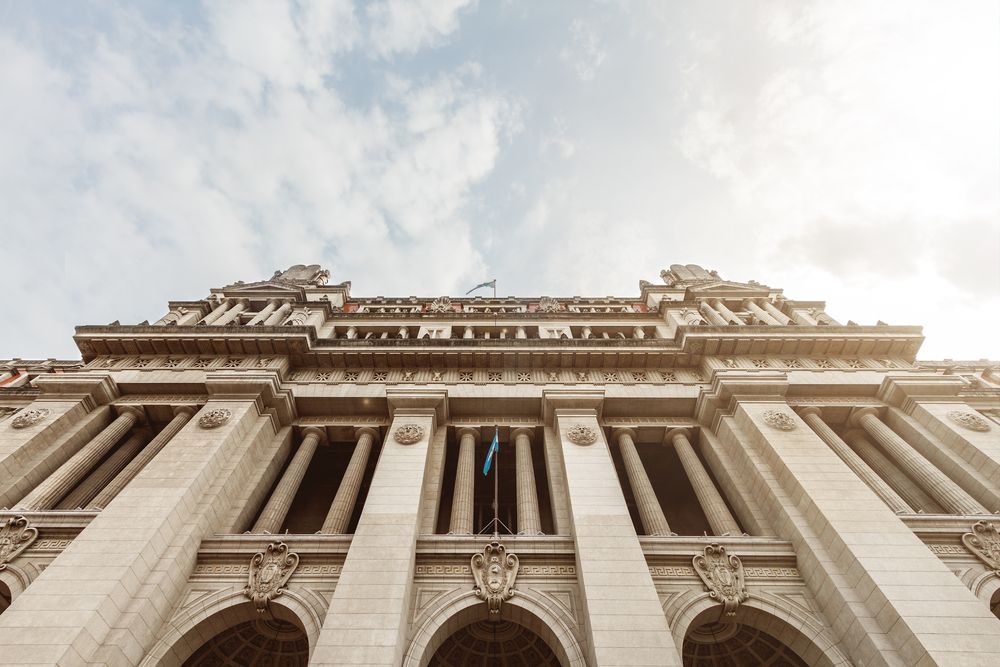Argentina: The Right to Be Forgotten Strikes Again
Maia Levy Daniel / Mar 14, 2022A case before Argentina’s Supreme Court of Justice may have broader implications for Latin America
Maia Levy Daniel is a research affiliate at the Center of Technology and Society (CETyS) at Universidad de San Andrés in Argentina.

In February 2022 Argentina's Supreme Court of Justice (SCJ) called for a public audience on the so-called "right to be forgotten" (RTBF) – or the "right to be delisted". The case Natalia Denegri v. Google was filed by Denegri and the two lower courts decided that an RTBF was applicable. Both parties appealed to the SCJ and the audience will be held mid-March.
Denegri is currently an entrepreneur and owner of a TV production company in the U.S. More than 20 years ago, Denegri was involved in a famous criminal case that resulted in the acting judge, his secretary, and police officers being relieved of their positions. Denegri was involved in the criminal investigation, but was not charged. However, videos of her speaking on TV programs about her involvement and the case at that time can be found whenever someone searches for her name on Google.
And that's exactly what Denegri has been fighting against: the plaintiff argues that she was very young at the time she exposed her life, that she had been manipulated into participating in the criminal case, and that these videos have damaged her life over the following years. That's why Denegri states that a RTBF should be granted– she wants that past to be "forgotten". The lower courts argued that the content linked to Denegri is not of public interest. Their rationales included that since the material is only related to fights and scandals around the case, it is "of no cultural or journalistic value"; that Denegri may feel ashamed of "indecorous" scenes, particularly nowadays that she "has a family and a professional career"; and that, consequently, her right to honor has been affected.
The so-called RTBF was first adopted by the European Court of Justice in the "Costeja" case in 2014. Freedom of expression advocates in different regions have long argued that the implementation of the RTBF could be very hazardous. In order to be legitimate and aligned with human rights standards, restrictions to the right to freedom of expression –which includes the right to search for, receive, and disseminate information– must comply with a three-part test: 1) the restriction must be provided by law; 2) the interference must pursue a legitimate aim in accordance with international human rights treaties; and 3) the restriction must be necessary to secure one of those aims and proportionate to their pursuit. These restrictions must be narrowly interpreted.
Given that the RTBF in Denegri's case was implemented by a court without a previous law, the interference will not pass this test. In order to limit other people's right to freedom of expression, the RTBF must be provided by a law that could detail the specific cases in which it may apply– for instance, distinguishing between cases of public interest and those of private interest– and must be discussed in an open and widely participatory debate between lawmakers and the relevant stakeholders. Otherwise, what would happen if a public officer asked Google to delist content on corruption claims against them because they considered it harmful?
The case is complex and an exhaustive analysis exceeds the scope of this piece, but there are key details in Denegri's case that may differ from similar cases worth highlighting. In the first place, it is crucial to understand whether the content linked to Denegri is of public interest. She was involved in a famous criminal case, and there is demonstrated social and media interest in it. In addition, the lower courts argued that the specific links to be blocked would be defined in a future implementation phase. Wouldn't this fail to pass the three-part test? The limitation wouldn't be as restrictive as it must be according to the Inter-American Human Rights System (IAHRS). What's more, is the content still necessary and relevant? In order to determine if any harm was done, is it relevant that Denegri was able to finally rebuild her life as a successful entrepreneur?
Based on the IAHRS and constitutional provisions, the Argentinian attorney general on freedom of expression answered some of these questions and suggested the Supreme Court reject the claim. According to his opinion, Denegri is a public figure– which makes it a very different case from Costeja's– and the contents relating to the case are of public interest, since the criminal case had repercussions among many people and the media. At the time, Denegri decided to talk about it on various TV programs and she's still a public figure. Importantly, the attorney general also states that the interviews in which Denegri participated and the scandals in which she was involved are also of public interest. They provide valuable information on the media coverage the case had and the level of attention given to it. He argues that the cultural, aesthetical, and journalistic value has nothing to do with the analysis. Also, the contents are not illegal, discriminatory, harmful, or defamatory and they don't incite violence. Thus, the delisting would imply censorship and would affect the right to freedom of expression.
In Latin America, we've witnessed various attempts to regulate this issue over the past years. Bills have been drafted in Argentina, Brazil, Mexico, and Uruguay, but these measures failed to pass. In addition, several cases have reached different courts in the region. In Argentina, this is the first time a court has implemented the RTBF– and other Latin American countries may be watching.
We don't know how the SCJ will finally decide on this case. What we do know is that in 2019 the SCJ stated that blocking or filtering contents of public interest, even when they had been already available for some time, entails censorship. What we also know is that implementing the RTBF will have important consequences not only for Argentina but also for the whole region. The attorney general is right: even when the contents in this case may be annoying, uncomfortable, or harmful for Denegri, that is not enough to restrict the traffic of information that is of public interest. Let's hope that the SCJ sees it the same way.
Authors
